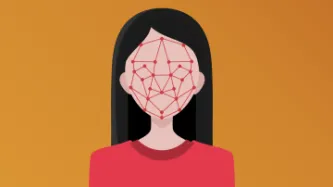Search
Content type: Advocacy
Privacy International has joined several UK civil society organisations from across sectors in expressing our deep concerns regarding the financial surveillance powers proposed in the UK Data Protection and Digital Information Bill (DPDI Bill). Specifically outlined in Clause 128 and Schedule 11, these measures introduce mass algorithmic surveillance aimed at scrutinizing bank and third-party accounts to purportedly detect welfare fraud and errors. In other words, the Department for Work…
Content type: Case Study
Students around the world are quickly turning into training-data for intrusive facial recognition technology. In Sweden, the national Data Protection Authority (DPA) ruled that students at Anderstorp High School in Skellefteå had their right to privacy violated by the testing of facial recognition software to take attendance.
The Skellefteå school board invited a private company, Tieto, to install facial recognition cameras across classrooms that would automatically register students’ class…
Content type: Case Study
Over the past decade targeted advertisement has become exponentially more invasive. To enable targeted advertisement, massive amounts of data about individuals are collected, shared and processed often without their knowledge or consent. This information about us is then used to profile us and micro-target us to sell us products or influence our views.
This is a significant intrusion to our privacy inevitably affects our perogative not to reveal our thoughts; not to have our thoughts…
Content type: Examples
Mexico is one of the biggest buyers of next-generation surveillance technology. And now data leaked to Forbes indicates it's taken an unprecedented step in becoming the first-known buyer of surveillance technology that silently spies on calls, text messages and locations of any mobile phone user, via a long-vulnerable portion of global telecoms networks known as Signalling System No. 7 (SS7).
The revelation was contained in what an anonymous source close claimed was…
Content type: Examples
The whistleblower said they were unable to find any legitimate reason for the high volume of the requests for location information. “There is no other explanation, no other technical reason to do this. Saudi Arabia is weaponising mobile technologies,” the whistleblower claimed.
The data leaked by the whistleblower was also seen by telecommunications and security experts, who confirmed they too believed it was indicative of a surveillance campaign by Saudi Arabia.
The data shows requests for…




